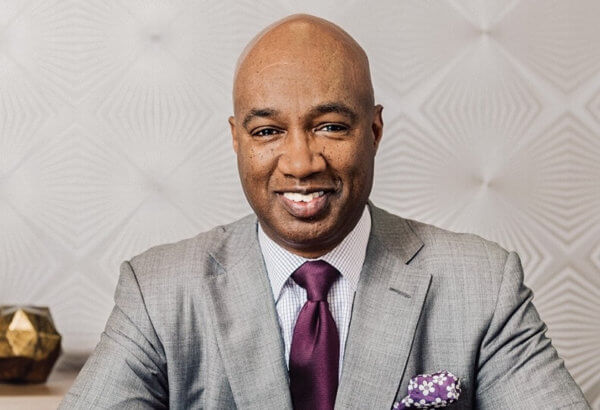Radio Facts: 
Larry Irving has made history by becoming the first African American to be inducted into the Internet Hall of Fame for his work.
Irving was honored at the Internet Hall of Fame 2019 Induction Ceremony on September 27, 2019, in San Jose, Costa Rica. He is widely credited with coining the term “digital divide” for his impact on increasing internet access among unserved and underserved populations. The digital divide has been and continues to be referenced by virtually every governmental, corporate, philanthropic and non-profit organizations across the planet that is concerned about increasing access to the internet and improving user competence in navigating the web.
Irving served for almost seven years as Assistant Secretary of Commerce for Communications and Information and Administrator of the National Telecommunications and Information Administration (NTIA), where he was a principal advisor to President Bill Clinton, Vice President Al Gore and Secretary of Commerce Ron Brown on domestic and international telecommunications and information technology issues.
“Focus on the digital divide unquestionably has contributed to the growth and development of the internet as new and diverse populations have come online because of efforts to bridge the divide,” commented Chris Lewis, President and CEO at Public Knowledge. “The reports Larry commissioned as NTIA Administrator were the first, and remain some of the most notable and impactful, analyses of consumer access to the internet. In his introduction to a 1999 report, Larry was among the first to note that ‘[t]he divide between those with access to new technologies and those without is now one of America’s leading economic and civil rights issues.’ That formulation has been repeated numerous times by others in the intervening two decades both inside and outside the United States, and it laid a foundation for examining emerging technologies, specifically algorithmic decision-making and artificial intelligence.”
Irving was a member of the Obama-Biden transition team in 2008-2009 and was one of the architects of that administration’s early technology initiatives, including their broadband technology initiative (BTOP) that focused on connecting community anchor institutions to broadband networks to assist consumer access and connectivity. He also helped craft the Obama-Biden administration’s broadband “mapping” strategy, designed to determine the presence and quality of broadband in discrete communities, particularly in rural and exurban communities.
After leaving government, Irving assisted and consulted with tech companies seeking to address the digital divide, including working with AOL to develop strategies for increasing online subscribership among minority audiences. He also assisted Cisco open markets in Bulgaria and Romania by crafting programs in conjunction with the U.S. Embassies and Ambassadors to discuss the importance of internet connectivity. Additionally, Irving worked with the Global Internet Policy Initiative (GIPI) and assisted the program’s efforts to bridge the digital divide, including by aiding their work in India.
For his enduring efforts to help close the digital divide, Irving was:
· Presented with the James Madison Award, the American Library Association’s highest honor
· Honored by minority and civil rights groups:
· Congressional Black Caucus Technology Champion
· Minority Media Telecommunications Council Everett Parker Award
· National Association of Minorities in Communications Mickey Leland Humanitarian Award
· Rainbow Push Coalition Trailblazer Award
· Honored by community organizations:
· Silicon Harlem Charles B. Rangel Award
· Indigenous Broadcast Center of Anchorage, Alaska
· Honored by the consumer advocacy group Alliance for Public Technology with the Susan Hadden Award
· Honored by the National Association of Telecommunications Professionals
· Named one of the “50 most influential people in the year of the Internet” (1995) by Newsweek Magazine, which dubbed Irving “the Net’s Conscience”
Irving was born in a public housing project in Brooklyn, NY, raised in a working-class family in Queens, NY, and earned an undergraduate degree from Northwestern University, as well as a law degree from Stanford University.

